If you are a regular visitor to car dealerships for the last few years, you will notice that the number of cars with manual transmission is slowly declining.
Most manufacturers and consumers are showing their love for automatic transmissions, despite the popular belief that auto cars are less efficient than ones with stick shifts. Is it true or just a myth?
Contents
Can Automatic Transmission Accelerate Faster than Manual Transmission?
In terms of car transmission, lots of people who know a bunch of driving tips believe that manual gears help a vehicle move quicker and accelerate better.
It might be true at some point in the past when the traditional automatic transmission was sluggish, especially when you make the engine work under heavy load. However, is automatic faster than manual nowadays?
The automatic models these days are more advanced and innovative than their old counterparts. Some of their variations can easily surpass the stick shifts in terms of speed.
Which Automatic Transmission Type Is Better?
The automated manual transmission and the continuously variable transmission (CVT) are better than the traditional automatic and stick shift.
CVT is considered the standard gearbox for modern vehicles that not only deliver faster performance but also good fuel economy.
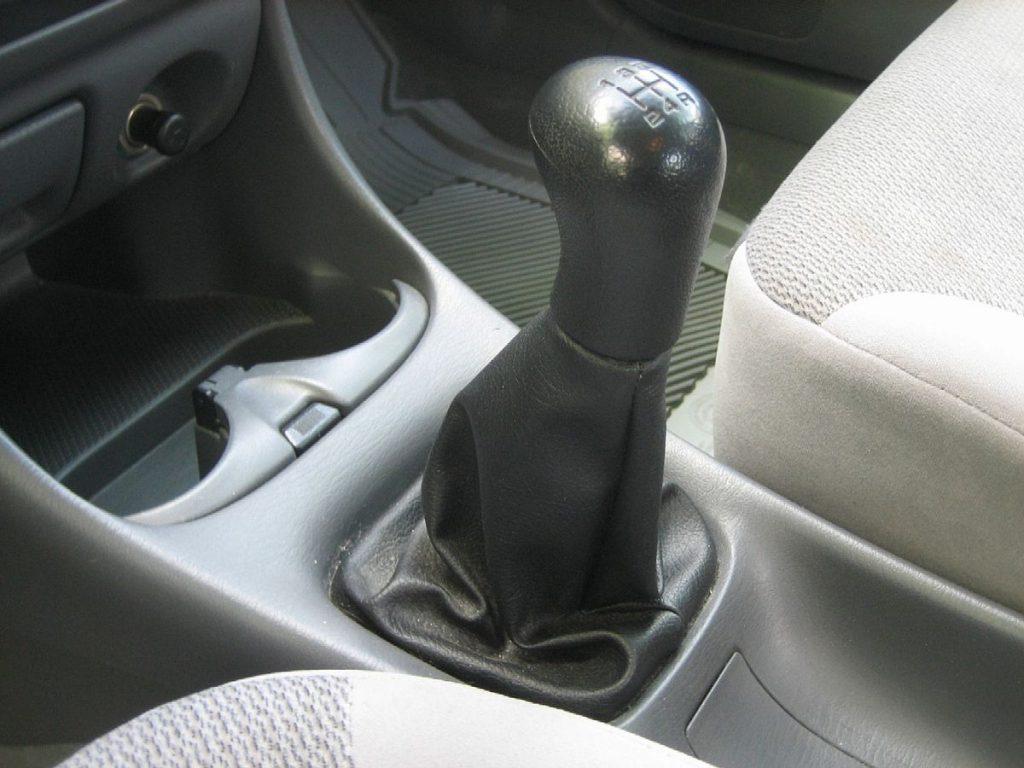
How An Auto Car Get Better Acceleration?
To identify which has the faster acceleration between automatic car vs manual, we can explain it in 2 ways. Let’s have a look:
1# Explanation
An automatic car accelerates quicker than a manual when starting the engine from a standstill. It is because when accelerating, the driver does not need to step off the gas for shifting gears. It puts the engine in proximity to its torque sweet spot.
SEE MORE:
- Details about Various Auto Transmission Types
- Automatic Gearbox: The Functions of Low Gear Explained
A manual gearbox still performs better when driving downshift. A good driver knows where the vehicle will be in the next 3-4 seconds. Hence, he can apply the right gear exactly when the car starts moving downhill.
On the other hand, the gear changes automatically in an automatic car. Then, the gearbox will take a few seconds before moving to the downshift.
2# Explanation
As we already know, automatic cars don’t change gears. For this reason, the energy transfers from the engine to the driving wheel more smoothly and quickly.
The time wasted on changing gears is minimal in these cars, especially in the newer models. Therefore, a car with an auto gearbox accelerates faster than a manual transmission.
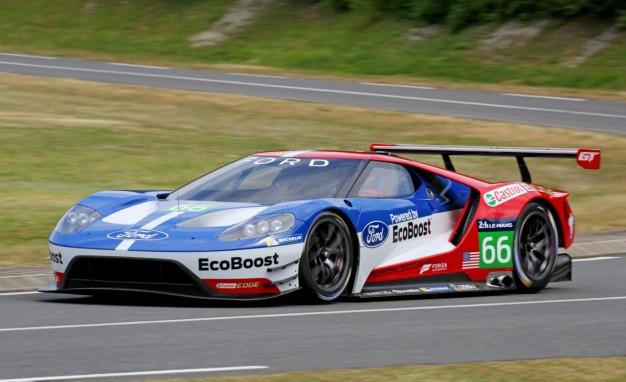
You might be thinking that the swiftest car would be the one that does not have any gear at all. Well, that’s true. For this reason, F1 cars are bound to have gears. After all, the drivers have to have some control over the wheels, right?
>> We have used Japanese cars for sale that accelerate nicely regardless of transmission type, click here!!! <<
What made the difference?
As we know from the explanation above, manual transmission used to take drivers by storm but as time passed by, automatic transmission has overcome its technical drawbacks.
Nowadays, most car manufacturers favor automatic transmissions and even semi-automatic transmissions for a new lineup of future models.
We all hold some unreasonable love for manual transmission partly because we mistake more exorbitant cars for higher performance.
Common cars use automatic transmissions and high-end cars such as sports cars use manual transmissions. However, historical records of automatic transmission developments have proved the other way.
In the past, automatic transmission mechanisms used a fluid torque converter. It was this old converter that was inefficient and thus made the gear shift in automatic cars prevent effective acceleration.
Moreover, past automatic models had only 1-4 gears compared to manual ones with 5-6 gears of transmission.
https://upgradedvehicle.com/wp-content/uploads/2023/05/Bad-Torque-Converter.jpg
In the past, automatic transmission mechanisms used a fluid torque converter. (Photo: Upgraded Vehicle) / alt: fast automatic car
At present, modern torque sensors detect the roughly same spinning speed between impellers and the turbine or they can detect the stabilizing torque output.
The modern sensor then locks up the torque converter mechanically with a suitable gear. At this point, the whole plate is pushed together to form a mechanical link, faster than any human driver can shift gears manually.
The more modern the automatic car is, the closer the lock-up ratio. In a more understandable explanation, right after the torque sensor feels the need to shift gears, the computer system in modern automatic cars tells the torque converter to lock up.
Thanks to the sensor, the converter has become much more efficient.
However, this is not so true when it comes to racing cars. Racers are experts at feeling the speed and manipulating the engine, thus they can switch gears manually with extreme ease and effectiveness.
Therefore, racing car acceleration becomes much less dependent on the car itself but more on the driver’s ability to shift gears without reducing momentum.
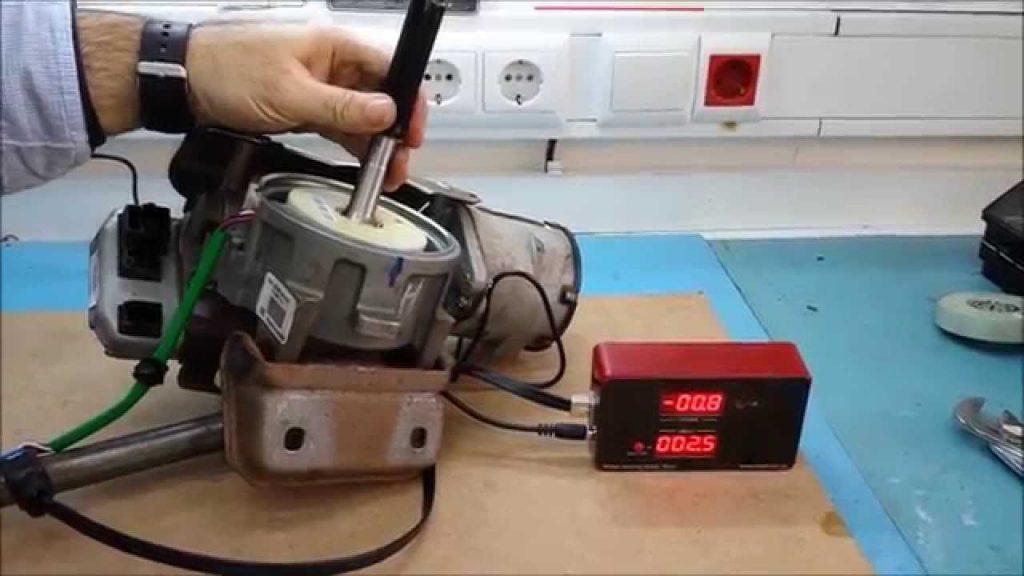
FAQs on Manual Vs Automatic Acceleration
-
What makes automatic transmissions accelerate faster?
Automatic transmissions use advanced electronic control systems to optimize gear changes and maintain the engine’s power band, resulting in smoother and faster acceleration without the need for manual gear shifting.
-
Are there any advantages to choosing a manual transmission for acceleration?
Some performance enthusiasts prefer manual transmissions for their precise control over gear selection and rev-matching abilities, which can be advantageous for certain driving scenarios.
-
Does the type of vehicle affect acceleration performance between the two transmissions?
Yes, the type of vehicle and its specific transmission design can influence acceleration performance. Some high-performance sports cars equipped with manual transmissions may offer faster acceleration due to their gear ratios and driver engagement.
-
Are there any drawbacks to automatic transmissions for acceleration?
While automatic transmissions generally provide smoother acceleration, they may not offer the same level of driver engagement and control as manual transmissions, which some drivers prefer for a more spirited driving experience.
-
Does fuel efficiency play a role in transmission choice for acceleration?
Fuel efficiency can be a consideration when choosing a transmission, but advancements in automatic transmission technology have made them more fuel-efficient, often comparable to manual transmissions in terms of gas mileage.
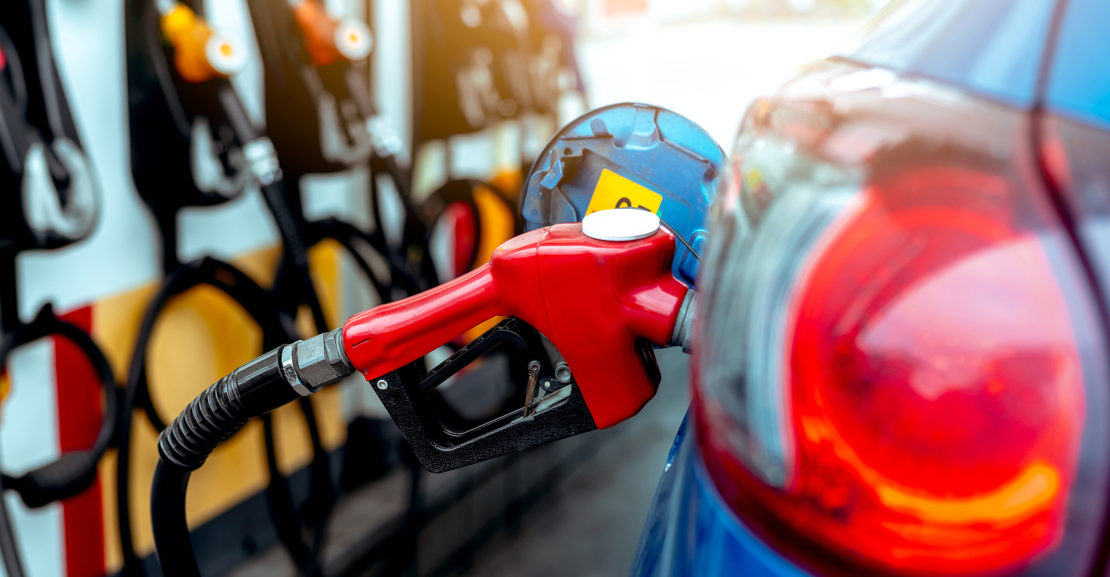
-
Are there any driving scenarios where manual transmissions excel in acceleration?
Manual transmissions can excel in scenarios where precise gear control is required, such as on winding roads, racetracks, or in off-road conditions.
-
Do automatic transmissions have launch control for faster acceleration?
Some high-performance vehicles with automatic transmissions come equipped with launch control systems that optimize acceleration from a standstill, allowing for rapid and consistent takeoffs.
-
Are automatic transmissions more suitable for everyday driving?
Many drivers find automatic transmissions more convenient and comfortable for daily commuting and stop-and-go traffic, as they eliminate the need for frequent gear changes.
-
Do car manufacturers offer both automatic and manual transmission options for the same model?
In many cases, car manufacturers offer models with both automatic and manual transmission options to cater to different driver preferences and market demands.
-
Can the driving style affect acceleration performance between the two transmissions?
Yes, the driving style can influence acceleration performance. Skilled manual transmission drivers who can shift gears quickly and smoothly may achieve comparable acceleration to automatic transmissions.
-
Which transmission type is more popular in the automotive market today?
Automatic transmissions have become more popular in recent years due to their ease of use, convenience, and advances in technology that provide competitive acceleration performance.
While automatic transmissions generally provide smoother and quicker acceleration, the choice between manual and automatic ultimately depends on individual preferences, driving habits, and the specific vehicle’s design.
Both transmission types have their unique advantages and appeal to different types of drivers. For more detailed information, check out this video from Lesics!
Conclusion
It’s hard for stick shift lovers to accept that their favorite gearbox is not the most efficient and fastest option anymore after understanding that automatic vs manual which is faster.
Some high-end manufacturers such as Ferrari and Lamborghini have dropped the manual entirely! So, just get over it and enjoy the blessings that the automatic transmission has to offer.

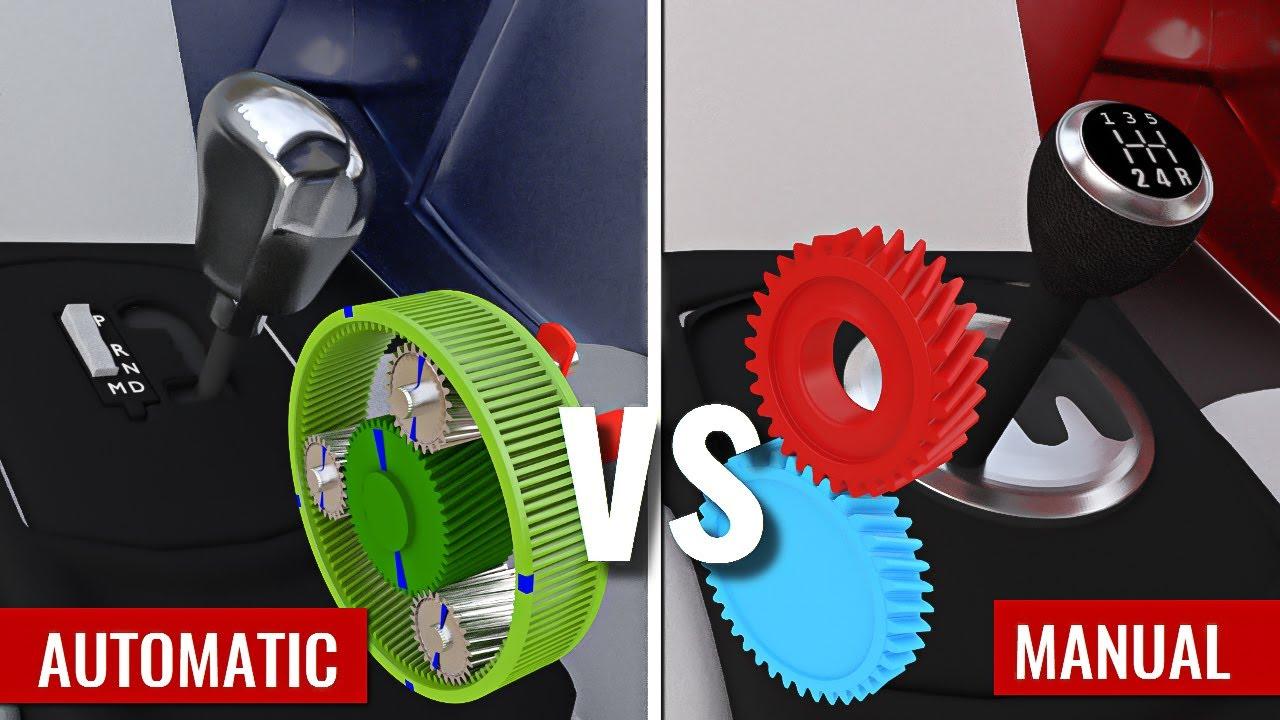


I still believe automatic transmission changes gear…. When you start and drive for some metres, it changes gear. If you pay close attention as you drive you will notice / hear the gear change.
a transmission that has a “manual mode” is WAY FAR NOT the same as a manual transmission.
I have a BMW 320 Diesel 2012 make (India) , am noticing, that when i accelerate the car in a/ matic mode, there s a problem, it takes command a little late, whereas, when i put it n the manual mode, the car shoots like a Bullet, would this b because of transmission Oil / some sensors not acting on time or some other problem, kindly guide / advice.
Best Regards
Sanjay G.
This article is complete nonsense. The efficiency losses in a torque converter at high slip mean less power to the wheels, period. You don’t understand physics or machines (ironic for an ME), or apparently how to drive a stick shift.
Do the math again, and provide a specific examples to support your claim, they don’t exist. Even CVT has less peak efficiency than a manual, while the engine has a fairly broad bsfc rpm range.
And if you want to launch harder, just rev up the engine more and let out the clutch.
You disappoint me.
lock up torque converter though???
OK he is RIGHT the auto is faster BUT only in REALLY fast cars. Lets exaggerate the circumstances. Lets say you have a car that went 0 to 60 mph in 3 seconds Shifting gears takes about 1/3 a second each shift IF you are EXTREMLY fast and good at it. A auto takes almost 0 seconds to shift AND you do not have to back off power for the shif.t So with a car with so much power it cant be shifted fast enough my manual will have a quicker time with a auto. HOWEVER slower cars in the 0 to 60 in 6 second range will likely be quicker as a manual. The main reason is because it will not have enough power to make auto faster and the manual have a significantly LESS power loss than a auto . SO a auto with so much power the loss doesn’t matter much will be quicker than the manual.
what about one of those semi-automatic cars with the gear shifts? is enabling the sport gear things gonna do anything for my acceleration? or should i stick to pedal to the medal and hope for the best